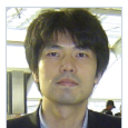Hepatitis B Virus Reactivation during Treatment with Multi-Tyrosine Kinase Inhibitor for Hepatocellular Carcinoma.
कीवर्ड
सार
Hepatitis B virus (HBV) reactivation is well documented in individuals with cancer who receive certain cytotoxic or immunosuppressive therapies including rituximab treatment. As a general rule, the risk is greatest upon withdrawal of chemotherapy. The risk ranges from approximately 20 to 50% among HBsAg-positive carriers. A 67-year-old man was diagnosed with inoperable multiple hepatocellular carcinoma accompanied by an increase in alpha-fetoprotein and protein induced by vitamin K absence or antagonist II level. Eighteen weeks after starting on the oral multi-tyrosine kinase inhibitor TSU-68, laboratory investigations showed a substantial increase in serum transaminase levels (AST: 302 IU/l; ALT: 324 IU/l) and an elevation of the HBV-DNA level (6.9 log copies/ml). The diagnosis was that the cause of the acute hepatitis was HBV reactivation and we immediately administered entecavir. Two months after the initiation of daily entecavir treatment, laboratory findings showed that the serum levels of transaminases and ALP had improved (AST: 18 IU/l; ALT: 10 IU/l; ALP: 197 U/l). When the HBV markers were examined 4 months later, they were altered: HBeAg was negative and HBeAb was positive. Entecavir treatment was discontinued after 6 months. Although reactivation with rituximab has been reported, reactivation with a tyrosine kinase inhibitor is extremely unusual in a patient who is HBsAg negative but anti-HBc positive. This is the first report describing HBV reactivation with an increasing HBV-DNA level in a HBsAg-negative/HBcAb-positive/HBsAb-positive patient who was treated with TSU-68 for hepatocellular carcinoma.


